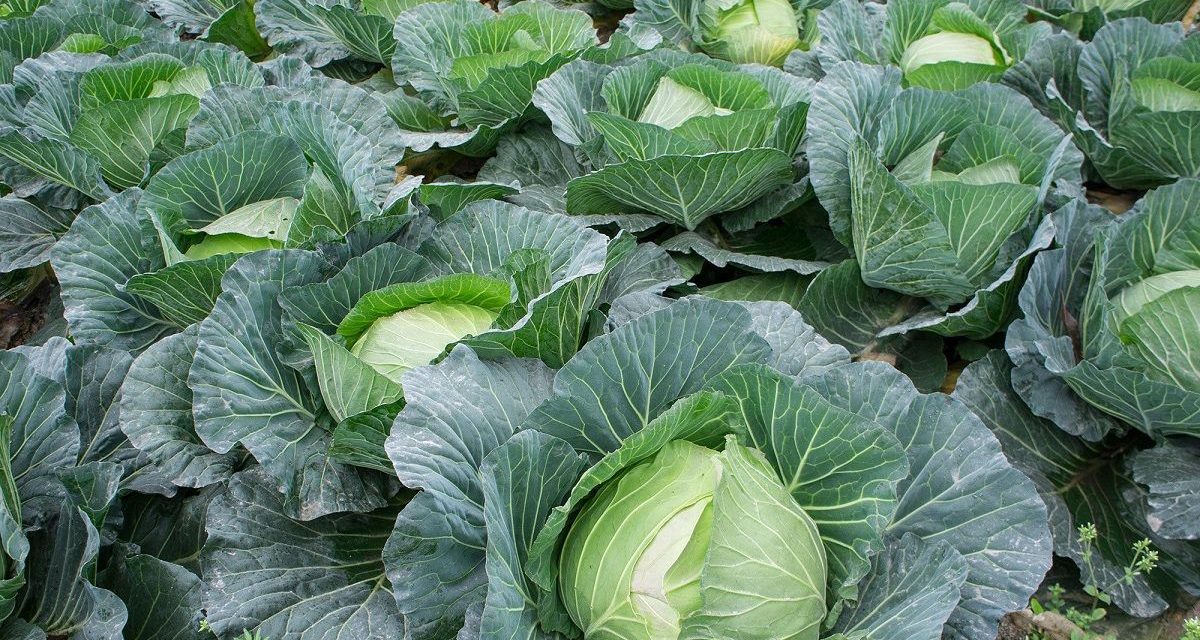- This topic is empty.
- AuthorPosts
- Febuari 19, 2025 at 12:26 um #570141

Cabbage is a popular leafy vegetable grown worldwide, including in Nigeria, due to its rich nutritional content and versatile use in various dishes.
To achieve high yields and ensure healthy crops, cabbage requires proper agronomic practices and balanced fertilization.
Organic fertilizers, in particular, are gaining popularity among farmers due to their sustainability and positive effects on soil health.
In this article, we’ll discuss the key aspects of agronomic productivity and the appropriate organic fertilizer rates for cabbage cultivation to help you maximize your crop yield and improve soil fertility.
1. Agronomic Practices For Cabbage Cultivation
The productivity of cabbage is highly influenced by several agronomic practices, including land preparation, planting, irrigation, and pest management. Proper soil preparation is essential for cabbage to grow well.
The soil should be tilled deeply to break up any compacted layers and improve root penetration. It is also important to test the soil’s pH, as cabbage grows best in slightly acidic soil with a pH range of 6.0 to 6.5. Before planting, it’s advisable to incorporate organic matter such as compost into the soil to improve its fertility and texture.
Cabbage should be planted at the right time to avoid extreme heat, which can stunt growth. In Nigeria, the best planting season for cabbage is during the cooler months, typically from November to March. Irrigation is also crucial, as cabbage requires consistent moisture to produce tender, high-quality heads.
2. Role Of Organic Fertilizers In Cabbage Growth
Organic fertilizers are made from natural materials such as compost, manure, and plant residues.
They are rich in essential nutrients and improve soil structure, water retention, and microbial activity. Organic fertilizers help build healthy soil ecosystems that support sustainable farming practices. In cabbage cultivation, the use of organic fertilizers has several benefits.
It provides a slow-release source of nutrients, ensuring that the cabbage plants have a consistent supply of food throughout the growing season. Furthermore, organic fertilizers are less likely to burn plants or leach into groundwater, making them an environmentally friendly option.
By enhancing soil health, organic fertilizers also increase the soil’s ability to hold moisture, which is crucial for cabbage growth, especially in areas with inconsistent rainfall.
3. Recommended Organic Fertilizer Rates For Cabbage
The application of organic fertilizers should be based on soil nutrient levels and crop requirements. While the exact rates may vary depending on the specific type of organic fertilizer used and the soil’s fertility, a general guideline for cabbage is as follows: before planting, incorporate about 10 to 15 tons of well-decomposed organic manure (such as poultry, cow, or sheep manure) per hectare into the soil.
This amount helps provide the necessary nutrients for early-stage growth and root development.
In addition to this pre-planting application, cabbage may benefit from side-dressing during the growing season, particularly when the plants are in their rapid growth phase.
A light application of compost or organic fertilizer at rates of 2 to 3 tons per hectare can be applied around the base of the plants, ensuring that the nutrients are available when the plants need them most.
The timing of fertilizer application is equally important. It is recommended to apply organic fertilizer at least 2-3 weeks before planting, allowing the soil to absorb and integrate the nutrients.
Additional side-dressing can be done when the cabbage plants are 4-6 weeks old and again at the 8-week stage, depending on the plant’s growth.
Monitoring the growth and leaf color of the cabbage plants can help determine whether additional fertilization is needed. If the plants show signs of nutrient deficiency, such as yellowing leaves or stunted growth, it may be necessary to apply more organic fertilizer.
4. Benefits Of Organic Fertilizers Over Chemical Fertilizers
While chemical fertilizers can provide quick results and are widely used in conventional farming, organic fertilizers have distinct advantages, especially for long-term soil health and environmental sustainability.
Organic fertilizers not only provide essential macro-nutrients like nitrogen, phosphorus, and potassium but also micronutrients that promote overall plant health.
Over time, the use of organic fertilizers can improve soil structure, increase the water-holding capacity of the soil, and support beneficial microorganisms that help break down organic matter into usable nutrients.
Unlike chemical fertilizers, which can lead to soil degradation, organic fertilizers encourage biodiversity and improve the organic matter content of the soil. This results in healthier crops, higher yields, and less dependence on chemical inputs.
5. Monitoring Soil Health And Fertilizer Application
The key to successful cabbage cultivation using organic fertilizers is regular monitoring of soil health and adjusting fertilizer applications as needed.
Regular soil testing can help determine the nutrient levels in the soil and ensure that your cabbage plants are receiving the correct balance of nutrients. Over-fertilizing can lead to nutrient imbalances, so it is important to follow the recommended application rates.
Additionally, crop rotation and intercropping with legumes can help maintain soil fertility and reduce the need for external fertilizers. By adopting integrated soil fertility management practices, farmers can maximize cabbage productivity while preserving soil health and promoting sustainability.
Achieving high agronomic productivity in cabbage cultivation requires careful attention to soil preparation, fertilization, and crop management practices.
Organic fertilizers play a vital role in enhancing soil fertility, promoting healthy plant growth, and improving the overall sustainability of farming operations.
By following the recommended organic fertilizer rates and understanding the nutrient requirements of cabbage, farmers can boost their yields and produce healthy, high-quality crops.
Whether you are a smallholder farmer or managing a larger farm, using organic fertilizers is a smart investment that not only benefits your cabbage crops but also supports long-term soil health and environmental sustainability.
Read Also: Cabbage description: an essential leafy vegetable
- AuthorPosts
- You must be logged in to reply to this topic.

